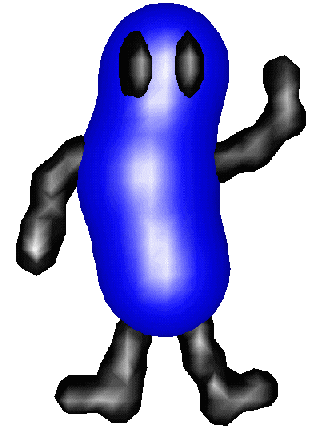A sample of things to come
Once again, I'm looking at some online news articles -- today I come across an item about a copyright infringement suit against Sean "P.Diddy puff daddy (zippadee doo dah)" Combs and the late Notorious B.I.G. concerning a nearly imperceptible 5 second horn sample from a song by the Ohio Players. He originally got hit with a $4 million judgement (which has since been reduced) and had the record pulled over copyright infringement. They replaced the sample with something else, and re-released the album and everyone's happy. I guess.
But come on, 5 seconds? Especially 5 seconds that noone but an Ohio Player would recognize and was so incidental that it's replacement didn't significantly alter the song. To further complicate things, there is a provision in the copyright standard that allows for "Fair Use". It allows an artist to use another artists "copyrighted content in new and transformative ways, so long as you use small amounts and do not cause too much harm to the market for the original work." An unrecognizable 5 second sample used in a completely different song would certainly seem to apply here. But Combs didn't even offer that arguement.
As an amatuer singer/songwriter this interests me. I have 2 Akai samplers sitting in my home studio right now. So far, the only thing I've ever used a sampler for is to create some unusal sycopated arpeggios for 1 song, and I'm not likely to use them for anything more sophiticated than that (maybe a rythm loop sometime, who knows). My friend Jimmy, on the other hand, creates his music almost exclusively with samples. He has software that allows him to loop and repeat chunks of music which he carefully crafts into some fairly interesting music (I actually do the same, except I create the music chunks myself using synthesizers, then use the sequencing software to loop and repeat the chunks). For the most part, his music uses the "license free" samples that came with the software (meaning he has the right to use it as he sees fit), but occaionally he likes to do tributes, which contain samples from other sources. He's a big fan of the duo Tatu, and one song uses a very short verbal sample - he's done a tribute for the "Evil Dead" movies just full of samples from the films - and he's done a song for "Speed Racer", and a whole album for "Cowboy Bebop". If he were to ever actually try to market his music, it could become a clearance nightmare. I have songs that use riffs that sound like the ones in popular recordings (the most obvious one being from a Tom Petty and the Heartbreakers song), but they aren't samples because I played the parts myself.
And that's where you start wondering what the point is. What's the difference between sampling the opening horn riff from "sledgehammer" and paying a horn section to play it again for your record? Or my friend Jimmy sampling tatu, or finding a girl who sounds like them to say the line for him? Or me sampling the electric piano part from "breakdown" or playing it myself?
But, back to the article, which ends with an interesting bit of conspiracy paranoia...
Why would Combs, one of the biggest names in hip-hop, fail to defend sampling? Maybe it was simply inadvertence. Maybe it was a strategic decision (albeit a very bad one, as it turned out). Or maybe it was more calculating. Combs and his label can afford to pay for samples. Many aspiring artists and their fledgling labels—the next generation of would-be moguls hungry to unseat Diddy—cannot. Maybe Diddy cares more about the benefit of reduced competition than defending the work of the artist and the technique that helped create his empire. Tell us, Diddy, what were you thinking?
Yeah, what were you thinking?


0 Comments:
Post a Comment
<< Home